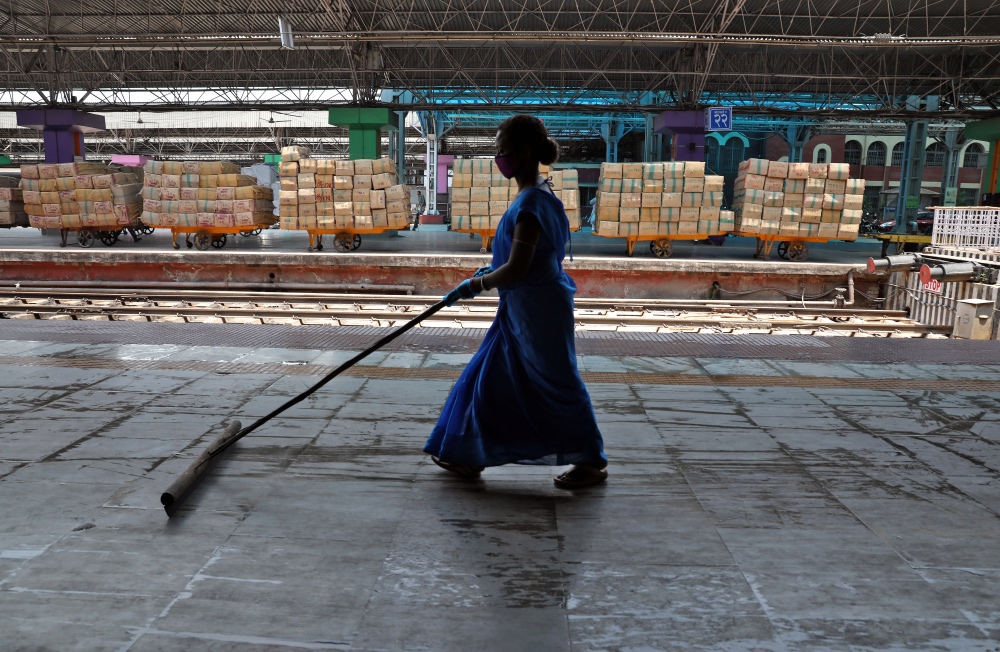London, UK
Thomson Reuters Foundation
A computer game where players morph into housemaid in India who tries to dodge the new coronavirus and feed her family has opened people’s eyes to inequality, one of its creators said on Tuesday.
The Survive COVID game brings to life the pandemic’s impact on poor families in India as the character tries to avoid infection while she keeps the household fed and safe, with no savings or running water to follow handwashing guidelines.

A worker cleans a platform at the Howrah Junction railway station after India announced a limited re-opening of its giant rail network beginning on Tuesday, after a nearly seven-week lockdown to slow the spreading of the coronavirus disease, on the outskirts of Kolkata, India, on 11th May. PICTURE: Reuters/Rupak De Chowdhuri
“We have heard back from several hundreds of people that it has been a real eye-opener,” said Vedika Agarwal, head of Chennai-based non-profit organisation Yein Udaan, which created the game together with technology firm XR Labs.
“They make a large part of India’s workforce and population so we can’t just turn a blind eye…not just because of our reliance on them but because they are also people who are a part of our society and our country – they need to be looked after.”
Millions of workers already living a marginal existence were left facing starvation under a lockdown introduced by India’s government in March, amid lags in promised government aid.
Agarwal said she hoped growing awareness of the devastating impact of COVID-19 on India’s poor and their lack of security would create a push to build a fairer society in the wake of the pandemic.
“Their plight has been highlighted and it’s in people’s faces, so the government can use this as an opportunity to restructure and re-implement its policies and law,” she told the Thomson Reuters Foundation.
Since its release a month ago, more than 150,000 players around the world have been put into the shoes of a housemaid fighting to buy food each day, manage her exposure to the coronavirus without income, savings or proper sanitation.
They lose if they run out of money or if their COVID risk reaches 100 per cent.
The game has also attracted interest globally, said Agarwal, with community leaders from Brazil to Kenya getting in touch to say that the challenges shown in the game mirrored those faced by the poor in their countries.
India has extended its nationwide lockdown to 31st May, with almost 150,000 cases and more than 4,000 deaths, with infections rising in states witnessing millions of migrant labourers returning from the big cities.
The families who inspired the games are still suffering, Agarwal said, amid continuing uncertainty and discrimination.
But investment by governments to help prevent the spread of the disease and re-start economies offers a chance to increase equality at a time when the issue is at the forefront of minds and shown how communities are connected, she added.
“The lockdown has proved that a lot of us rely on these individuals and their labour,” she said.





